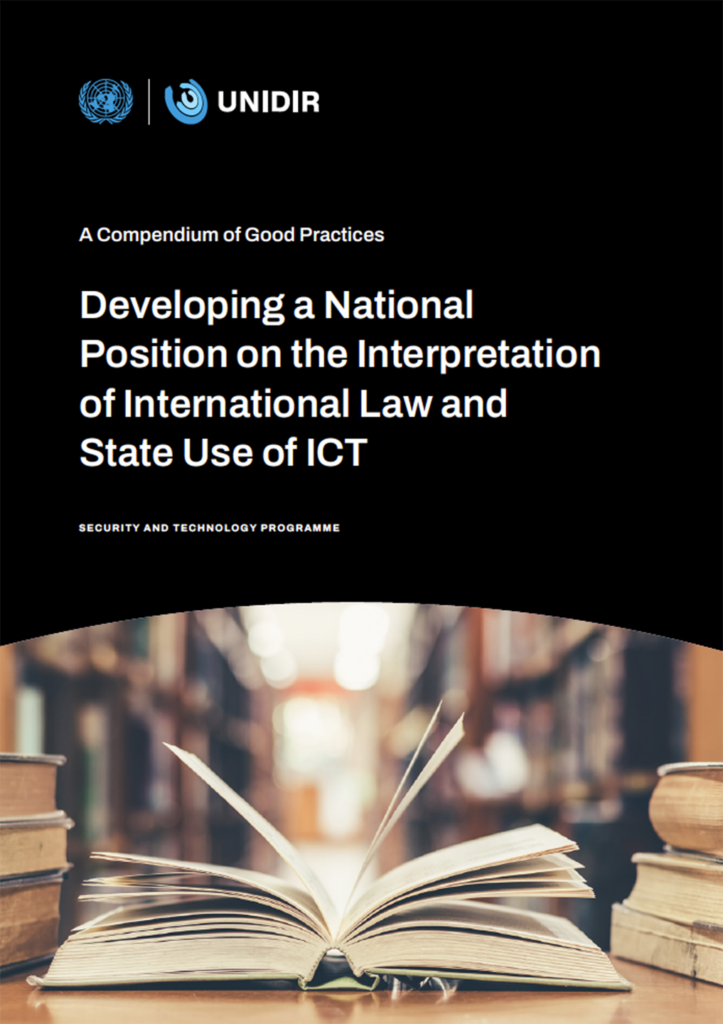This report provides a collection of good practices and national experiences in developing a national position on the interpretation of international law in cyberspace, as recorded by the States that have already developed and published one. It focuses on three aspects of a national position: utility, scope and process.
National positions can foster transparency on the national level as well as internationally. They can act as a reference document and can therefore guide bilateral engagement with international partners as well as national contributions to multilateral processes dedicated to State use of information and communications technology in the context of international peace and security. When drafted in consultation with international partners, a national position can foster international cooperation. It can also enhance preparedness to address future cyber operations by providing national guidelines with respect to assessment, classification and response to variety of malicious cyber operations. Finally, the utility of national positions can be found in their ability to contribute to the development of international law in general.
National positions are dynamic in nature. A State’s national position could initially focus on key issues as defined by that State’s interest and capacity. This approach requires prioritizing certain legal areas, with the understanding that the position may evolve in the future. In particular, it may need to adapt to technological developments and evolving multilateral discussions.
To maximize their utility, national positions should prioritize the interpretation of principles and rules previously agreed by the various multilateral discussions as applicable to State use of ICT. When deciding on the content of its national position, a State could further consult existing regional approaches to the topic and the national positions of other States. Indeed, topics most frequently addressed by existing national positions include the United Nations Charter, international humanitarian law, the law of State responsibility, due diligence and international human rights law.
Last but not least, this compendium suggests 10 steps that a State could consider taking when developing its national position – starting with defining the scope of the position through, inter alia, threat landscape assessment and consideration of foreign policy priorities, and concluding with publication and dissemination of the position.
Citation: UNIDIR Security and Technology Programme, "A Compendium of Good Practices: Developing a National Position on the Interpretation of International Law and State Use of ICT”, UNIDIR, Geneva, 2024.
